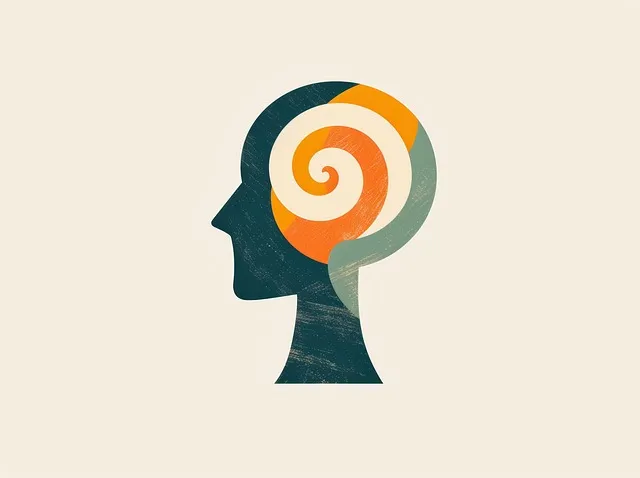In today's fast-paced world, mental wellness is crucial for overall well-being, driving demand for accessible support. Organizations like Littleton Kaiser Permanente behavioral health services offer innovative solutions, such as mental wellness coaching programs, to help individuals manage stress, improve mood, and enhance quality of life through evidence-based techniques and positive mindsets. This strategic guide outlines a structured framework for effective coaching, emphasizing understanding target populations' challenges, aligning with best practices, tailoring to diverse learning styles, and providing personalized resources between sessions. Integrating Littleton Kaiser Permanente's expertise deepens emotional healing processes, addressing stress, anxiety, and depression holistically, in line with Mental Health Policy Analysis and Advocacy.
Mental wellness coaching programs are gaining prominence as essential tools for promoting holistic well-being. With a growing recognition of mental health’s impact on overall life quality, these programs offer personalized support. This article delves into the critical development of such initiatives, focusing on understanding the need, designing effective models, and integrating services from leading providers like Littleton Kaiser Permanente Behavioral Health Services. By exploring these aspects, we aim to illuminate strategies that enhance mental wellness through coaching.
- Understanding the Need for Mental Wellness Coaching Programs
- Designing Effective Coaching Models: A Step-by-Step Guide
- Integrating Littleton Kaiser Permanente Behavioral Health Services into Coaching Programs
Understanding the Need for Mental Wellness Coaching Programs

In today’s fast-paced world, mental wellness is an increasingly important aspect of overall health and well-being. The demand for accessible and effective support has led to a growing recognition of the value that coaching programs can bring. Organizations like Littleton Kaiser Permanente behavioral health services are at the forefront of this movement, offering innovative solutions to address the rising need for emotional regulation and mental resilience among individuals seeking balance in their lives.
The development of mental wellness coaching programs is crucial in empowering people with practical tools and techniques to manage stress, improve mood, and enhance their overall quality of life. These programs focus on teaching mind over matter principles, enabling participants to cultivate a positive mindset and build confidence. By focusing on emotional regulation, these initiatives aim to equip individuals with the skills needed to navigate life’s challenges more effectively, ultimately fostering better mental health outcomes.
Designing Effective Coaching Models: A Step-by-Step Guide

Designing an effective mental wellness coaching program involves a strategic approach that can significantly enhance individuals’ resilience and overall well-being. At Littleton Kaiser Permanente behavioral health services, professionals have been instrumental in developing programs tailored to diverse needs. Here’s a step-by-step guide to creating impactful coaching models:
1. Assess Needs and Goals: Begin by understanding the specific mental health challenges prevalent in your target population. Identify the skills and knowledge required to build resilience and cope effectively. This stage involves extensive research, community engagement, and consultation with experts to ensure the program aligns with current best practices in mental health education programs design.
2. Develop a Structured Framework: Create a coaching model that offers clear modules or stages, each focusing on distinct aspects of mental wellness. Incorporate evidence-based techniques for coping skills development, stress management, mindfulness, and emotional regulation. The structure should allow for flexibility to cater to individual needs while ensuring consistency in delivery.
3. Tailor Coaching Techniques: Customize coaching methods to suit different learning styles. Incorporate a mix of one-on-one sessions, group discussions, and interactive workshops. For instance, incorporate resilience building activities that encourage participants to identify personal strengths and develop strategies to overcome challenges. Ensure the program encourages open communication, active participation, and practical application of learned skills.
4. Provide Comprehensive Resources: Equip coaches with a wealth of resources, including educational materials, guided meditations, workbooks, and relevant literature. This enables them to offer personalized support and guidance between sessions. The resources should be accessible and easily understandable, promoting self-reflection and further learning.
Integrating Littleton Kaiser Permanente Behavioral Health Services into Coaching Programs

Integrating Littleton Kaiser Permanente Behavioral Health Services into coaching programs offers a unique opportunity to enhance mental wellness support. These services, renowned for their expertise in behavioral health, can provide valuable insights and resources that enrich coaching practices. By combining evidence-based therapeutic techniques with personalized coaching, practitioners can facilitate deeper emotional healing processes and trauma support services within their sessions.
This integration allows coaches to address not only their clients’ goals and aspirations but also their mental health needs. Leveraging the expertise of Littleton Kaiser Permanente, coaches can navigate complex issues, such as stress management, anxiety, and depression, effectively. Such an approach aligns with Mental Health Policy Analysis and Advocacy efforts, promoting a holistic understanding of mental wellness that extends beyond traditional coaching methodologies.
Mental wellness coaching programs are evolving to meet the growing demand for support in navigating life’s challenges. By integrating evidence-based practices, such as those offered by Littleton Kaiser Permanente Behavioral Health Services, coaches can provide effective guidance. Following a structured approach, as outlined in this guide, allows for the design of tailored coaching models that enhance mental resilience and overall well-being. This comprehensive strategy ensures individuals receive the necessary tools to thrive in a complex world.






